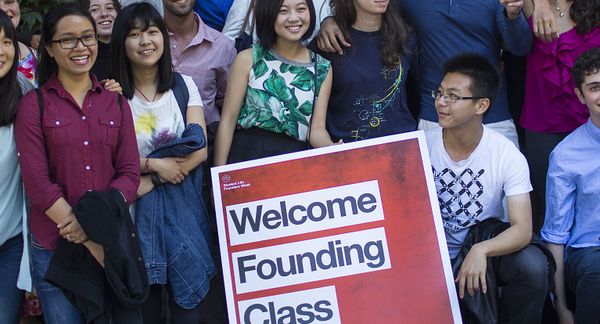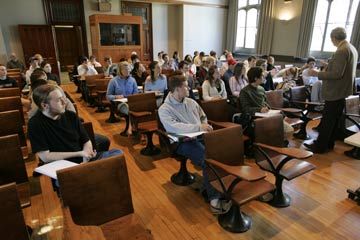MOOC mania may be abating somewhat since the 2011 introduction of these hugely popular massive open online courses, but they still loom large on the academic landscape. MOOCs are offered by some of the most well-respected universities on the planet and are available through forward-thinking companies like Coursera and edX, often free of charge. There is some controversy about MOOCs, though, and much of it revolves around making them available for college credit. Although very few MOOCs are eligible for credit today, that may change [source: Kraft-Linder].
The problem isn't course quality. It has to do with what we'll call regulation, or making sure any student obtaining credit from a MOOC has actually completed the class and mastered the material. Where postsecondary coursework is concerned, being able to provide proof will be the key to the acceptance of for-credit MOOC classes in the future.
Advertisement
There's actually a lot of encouragement for validating MOOCs. Rising tuition, the need for advanced training in the workplace and large numbers of workers desperate to jump-start their careers have helped shape a favorable environment for MOOC acceptance if and when the important issue of regulation can be settled to everyone's satisfaction [source: Clark].
To begin addressing the problem, some MOOCs offer verified final exams for interested students. Verification certificates have more academic validity than simple notices of completion, and a few may be eligible for limited undergraduate college credit. Some MOOC exams are conducted via webcam, while others require students to visit specific testing sites and provide formal identification. In true virtual style, Coursera is exploring a unique long-distance option that uses keystroke identification to validate student participation in some of its programs [sources: Young, Masterson].
These might be the first salvos in a long-term strategy to mainstream MOOCs and get them the recognition they -- and the students completing them -- may deserve. Until then, MOOCs are still a free (or low cost) way to amp up a resume, get ahead on demanding college coursework or pursue a subject out of curiosity -- for the sheer joy of scholarship. Yep, there are still a few folks around who think learning is its own reward.
Advertisement



